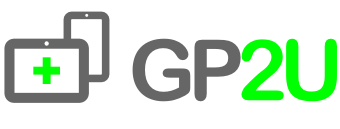Tuesday, 25 November 2014
Will the future healthcare system still need doctors?
Over on LinkedIn Kim Bellard posed the question Is it possible that in our future health care system we won't need physicians? - which got me to thinking about the answer.....
Of course it's possible, however to make it happen consider the complexity of the AI required. In the course of a usual face to face medical consultation:
The patient arrives, and I give them my standard introduction "Hello <name>, I'm Dr Freeman (or James for a child), how can I help?
I place myself on the same level as the patient. In the ER I pull up a seat so I am not towering over the bed. In my consultation rooms I invite the patient to sit beside me in a chair where they can see my screen.
This construct opens the channels of communication in a very human way. It sets up the framework of patient here seeking help, me next to them offering help, and the notion of us communicating on an equal level.
The patient then begins talking. The average doctor will interrupt after 16 seconds, having more or less formulated an initial working diagnosis. I don't, I shut up and listen. Most patients run out of steam after about 2 minutes, some get to 5 minutes and may get cut off. Often the most salient facts come right at the end with comments like... "and I've lost 10 kilos in weight, does that matter?"
During this time a vast quantity of both verbal and non-verbal information is communicated.
It's said at least 50% of communication is non verbal and any machine hoping to replicate what I do needs to be just as good at doing it as I am.
Now we move into a question and answer phase where I explore various diagnostic possibilities. Does the patient provide evidence to support my diagnosis, or, am I metaphorically barking up the wrong tree?
At some point I will have either decided on a diagnosis, or the steps required (tests, scans, examination) to establish a diagnosis. Occasionally I'm baffled!
Towards the end of this conversation I will ask the question "What do you think it could be?"
While the everyone's a comedian answer is "You're the doctor, you tell me" I need to know what drove the patient to come to see me. If I don't address that driver i.e. "I think it might be cancer" I might well make the correct diagnosis but will not cure the patient of the fear that brought them to me in the first place.
In medicine we say the essence of the diagnosis is the history and ascribe a number like 70% to that, 20% to examination, and 10% to tests. Depending on the realm, and who is inventing the statistics these numbers vary a bit, but the key thing to understand is that diagnosis hinges on a conversation between two individual humans.
Up until the point a computer can conduct a natural language conversation it will (outside very specific realms) always be inferior to a physician. Until it exists in robotic form that can go out and experience the nuances of social interaction with humans over a period of years it's really going to struggle with concepts like "I'm tired" or "I'm sad". Humans are not alone in the experience of emotion, but it plays a big part in what the words we say really mean.
We are a very long way from machines that can manage natural language, combine that with understanding of the non verbal, and can be accepted with trust. All these things play a role in patient-physician communication.
A diagnostic conversation can notionally be reduced to a decision tree but humans are supremely good at integrating diverse sources of input. A pocket calculator can leave us for dead, but we paint, we tell stories, and we intuit patterns far better than any machine in existence.
So for it to happen you need something that passes the Turing test.
I love tech and run GP2U, the largest Telehealth outfit in Australia. It works because video provides both the verbal and non verbal cues I need to formulate (in many but not all cases) an effective diagnosis or diagnostic plan, even in the absence of the ability to conduct a full physical examination.
What a physician does is as much about art as science.
When a computer can paint like Leonardo, or make music like Mozart, I'll happily retire.
Until then I'd rather see an expert person than an expert system.
Subscribe to:
Post Comments (Atom)

No comments:
Post a Comment